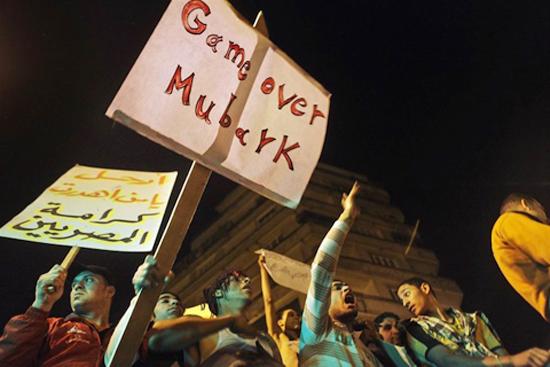
By Shahzeen Nasim
It wasn’t until mid-February when celebrations took hold in Tahrir square that President Obama praised the newly freed Egyptian people and supported democracy in Egypt.
Until then, the White House took an ambiguous approach to the Egyptian protests. Secretary of State Hillary Clinton and Chief of Staff Bill Daley insisted that Egypt’s freedom rested in the hands of its people, out of U.S. control.
The White House’s response to protests in Egypt epitomizes America’s hypocritical relationship toward the Middle East and the larger Muslim world.
In order to endorse “genuine democracy,” America should denounce dictators and oppressors, no matter how strategic their relationship might be.
Instead, the United States has supported Mubarak for his 30-year reign because he has implemented U.S.-approved policies in the Middle East.
For example, in February 1998, Egypt counseled Iraq to compromise on a weapons inspections rather than risk U.S. military attacks.
In return, the U.S. sent military aid to maintain strong diplomatic and economic relations.
The Congressional Research Service estimates an annual average of $2 billion in economic and military foreign assistance to Mubarak’s regime since 1979. The U.S. has also provided Egypt with over $16 billion in military training and education over the last 15 years.
In Mubarak’s hands, these billions of dollars in military aid were not necessarily used in the interest of Egypt. In 1999, the U.S. approved the construction of a $650,000 Presidential yacht named Freedom, according to the Department of Defense.
While the yacht was built as a training vessel for the Egyptian navy, navy officials called it a “museum piece and a pleasure boat of state used mainly for presidential parties.”
Despite knowing this, the U.S. deemed Egypt such a strategic ally that military aid continued until his resignation this February.
The White House even defended Mubarak when protests began and young Egyptians were killed or rounded up in the streets of Cairo.
In a PBS NewsHour interview on Jan. 27, Vice President Joe Biden said, “Mubarak has been an ally of ours in a number of things and he’s been very responsible…(for) Middle East peace efforts.”
Besides a brief period in 1980, Egypt has been under a “State of Emergency” since 1967, according to the Edinburgh Middle East Report. For 40 years, U.S.-funded police have limited liberties and vital human rights that Obama and others glorify now were suspended.
In 2005, the UN Committee Against Torture reported routine arbitrary arrest, indefinite detention, and widespread torture.
In 2002, the U.S. State Department’s own report on Egypt stated that detainees were “stripped and blindfolded; suspended from a ceiling or door frame with feet just touching the floor; beaten with fists, whips, metal rods, or other objects; subjected to electrical shocks; and …sexually assaulted.”
But the Obama administration acts shocked when protests break out and the U.S.-backed dictator faces opposition.
Although Mubarak indulged in mass human right violations, the U.S. only spoke against it when the rest of the world broke out in outrage.
Now, a military council rules Egypt and many of the political and economic conditions that led to the revolt are still in place, according to Al Jazeera.
The leader of a protest group named April 6th, who initiated reform in Egypt, said, “There’s still torture in secret prisons run by the National Security people.”
The revolution in Egypt has not ended. Mubarak’s corrupt regime is still deeply rooted in the lives of Egypt’s citizens and political activists are still fighting for democracy.
The White House’s hands-off policy toward reforms is hypocritical, since it did so much to support Mubarak.
The fate of Egypt rests in the hands of young protestors but the White House should at least stop supporting the human right violators behind these oppressive regimes.


